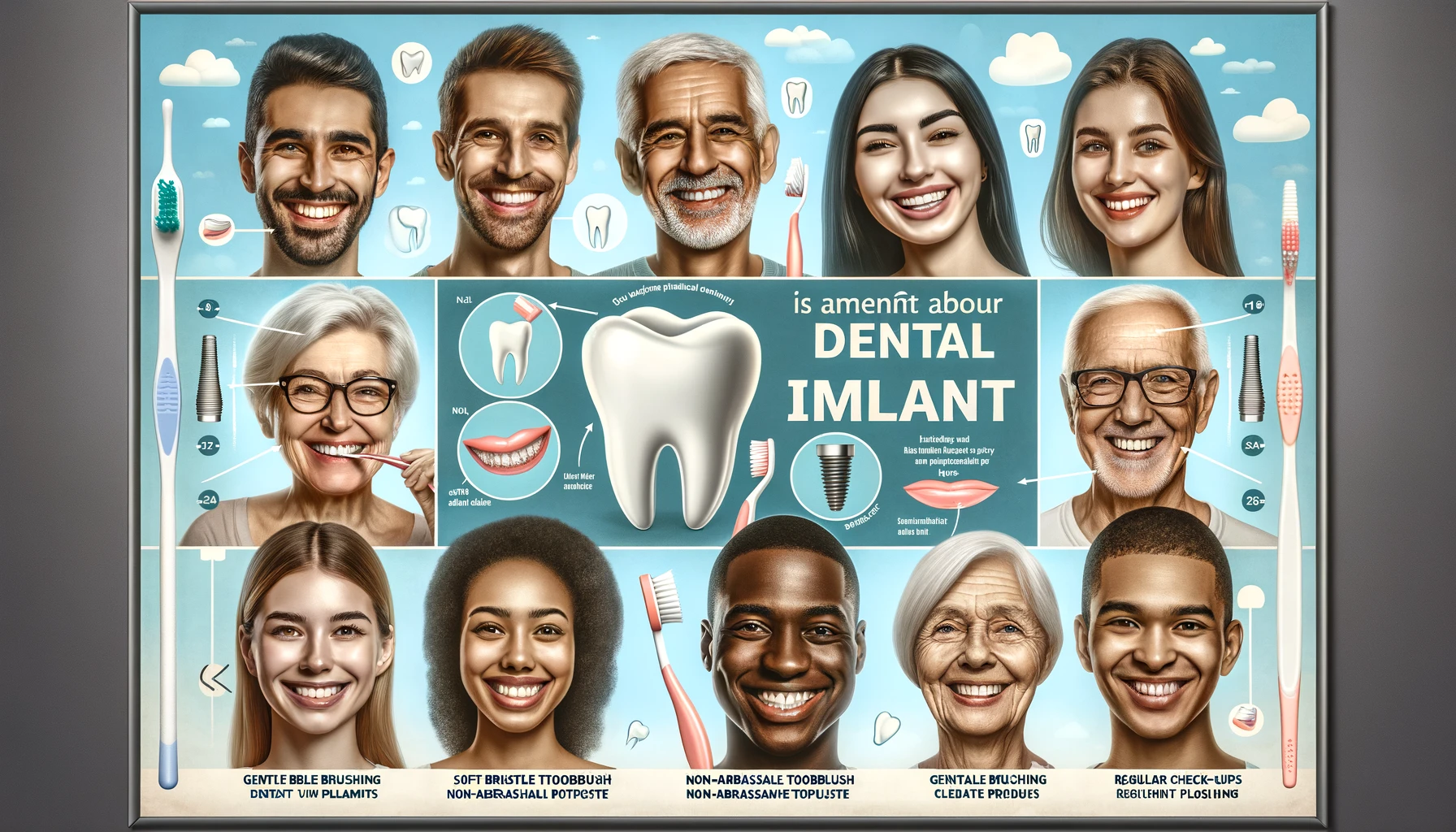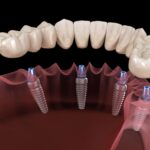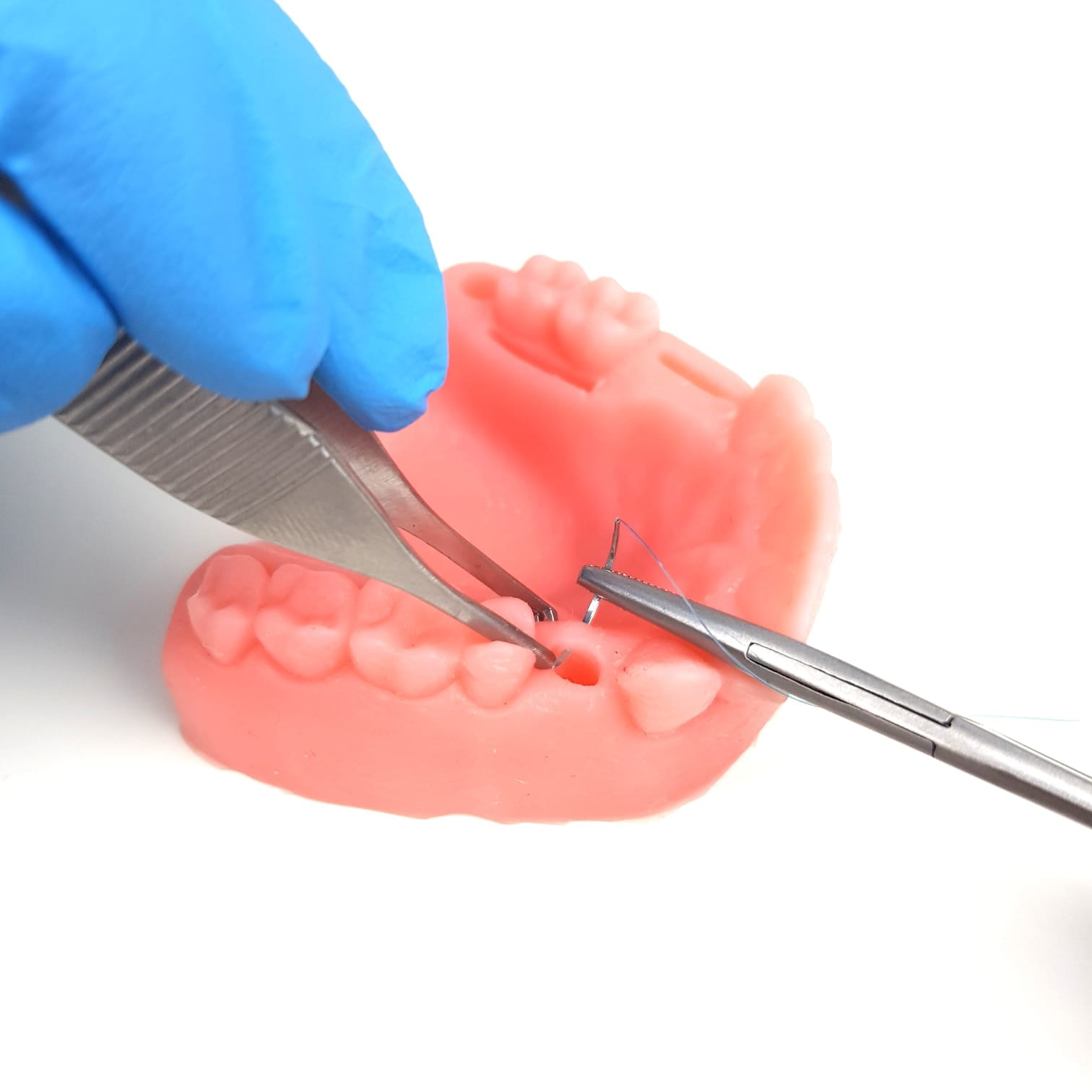Dental implant surgery is a significant investment in your oral health and overall well-being. While the expertise of your dental surgeon lays the foundation for success, your body’s natural healing mechanisms play a crucial role in the recovery process. Proper nutrition can actively support and accelerate healing, ensuring that your dental implant integrates seamlessly with your jawbone. In this comprehensive guide, we will explore the best foods for dental implant recovery, backed by recent studies and expert recommendations.
Understanding Dental Implant Recovery
The Osseointegration Process
After dental implant surgery, your body initiates a complex healing process known as osseointegration. During this phase, the bone and surrounding tissues gradually fuse with the implant, creating a strong and stable foundation. This process typically takes several months to complete fully.
Stages of Healing
Understanding the stages of healing can help you navigate your dietary choices effectively:
Initial Healing (1-2 weeks): Focus on soft foods and avoid irritation to the surgical site.
Early Osseointegration (2-6 weeks): Gradually introduce firmer foods as comfort allows.
Advanced Osseointegration (6-12 weeks): Continue with a balanced diet to support bone growth.
Final Healing (3-6 months): Maintain good nutrition for long-term implant health.
The Role of Nutrition in Supporting Recovery
Proper nutrition plays a vital role in supporting the healing process by:
- Providing essential building blocks for tissue repair
- Reducing inflammation around the implant site
- Strengthening bones to support osseointegration
- Boosting the immune system to prevent infections
Essential Nutrients for Dental Implant Recovery
Protein
Protein is crucial for tissue repair and regeneration. It provides the amino acids necessary for collagen production, which is essential for wound healing.Best sources:
- Lean meats (chicken, turkey, fish)
- Eggs
- Greek yogurt
- Cottage cheese
- Legumes (lentils, beans)
- Tofu
Tip: During the initial recovery phase, opt for softer protein sources like scrambled eggs or Greek yogurt.
Vitamin C
Vitamin C is a powerful antioxidant that supports the body’s natural healing processes. It plays a vital role in collagen production, which is essential for tissue repair and wound healing.Best sources:
- Citrus fruits (oranges, grapefruits)
- Strawberries
- Bell peppers
- Broccoli
- Kiwi fruit
Tip: If consuming citrus fruits, be cautious during the early stages of recovery to avoid irritating the surgical site. Consider vitamin C-rich smoothies as an alternative.
Vitamin A
Essential for cell growth and differentiation, vitamin A helps maintain gum health and the soft tissue around your implant.Best sources:
- Sweet potatoes
- Carrots
- Spinach
- Kale
- Mangoes
Tip: Steam or puree these vegetables for easier consumption during the initial recovery period.
Calcium and Vitamin D
Calcium and vitamin D work together to promote bone health and aid in the osseointegration process. Vitamin D helps your body absorb calcium more effectively.Best sources of Calcium:
- Dairy products (milk, yogurt, cheese)
- Leafy green vegetables (kale, spinach)
- Fortified plant-based milk alternatives
Best sources of Vitamin D:
- Fatty fish (salmon, tuna)
- Egg yolks
- Fortified foods
- Sunlight exposure (with proper skin protection)
Omega-3 Fatty Acids
Omega-3 fatty acids possess anti-inflammatory properties that can help reduce inflammation around the implant site, potentially speeding up the healing process.Best sources:
- Fatty fish (salmon, mackerel, sardines)
- Walnuts
- Flaxseeds
- Chia seeds
Best Foods for Dental Implant Recovery
Soft, Nutrient-Dense Options for Early Recovery (Weeks 1-2)
During the first two weeks post-surgery, focus on soft foods that are easy to consume:
| Food Type | Examples | Nutritional Benefits |
|---|---|---|
| Smoothies | Blend fruits, vegetables, and Greek yogurt | Nutrient-packed meal |
| Soups | Puree vegetable soups with added protein | Easy to digest; warm comfort |
| Mashed Avocado | Rich in healthy fats | Provides essential nutrients |
| Soft-Cooked Eggs | Scrambled or poached | High in protein |
| Greek Yogurt | High in protein and probiotics | Supports gut health |
| Cooked and Pureed Veggies | Sweet potatoes and spinach | Nutrient-rich options |
Gradual Introduction of Solid Foods (Weeks 3-6)
As you progress into weeks three to six, you can start incorporating more solid foods:
| Food Type | Examples | Nutritional Benefits |
|---|---|---|
| Soft-Cooked Fish | Salmon or tilapia | Rich in omega-3 fatty acids |
| Well-Cooked Pasta | Whole grain varieties | Provides carbohydrates for energy |
| Soft Fruits | Ripe bananas or peaches | Easy to chew; rich in vitamins |
| Tender Meats | Slow-cooked chicken or beef stews | High in protein |
| Cooked Vegetables | Steamed broccoli or carrots | Packed with vitamins and minerals |
Foods to Avoid During Recovery
To ensure optimal healing, avoid:
- Hard, crunchy foods (nuts, raw vegetables, chips)
- Sticky foods (caramel, gummy candies)
- Very hot or cold foods and beverages
- Acidic foods and drinks (citrus fruits, tomatoes)
- Alcohol and tobacco products
Recent Studies on Nutrition and Dental Implant Recovery
Recent research has shed light on the importance of specific dietary components and their impact on dental implant recovery:
Vitamin D and Calcium for Osseointegration: A 2023 study published in Journal of Oral Implantology found that adequate levels of vitamin D and calcium were associated with improved osseointegration and a lower risk of implant failure. Researchers observed a 30% improvement in implant stability in patients with optimal vitamin D levels compared to those with deficiencies.
Omega-3 Fatty Acids and Inflammation: A systematic review published in Journal of Periodontal Research in 2022 examined omega-3 fatty acids’ role in reducing inflammation after dental implant surgery. The review concluded that omega-3 supplementation could potentially improve healing and reduce complications by up to 25%.
Antioxidants and Wound Healing: A study published in Journal of Oral and Maxillofacial Surgery in 2023 investigated antioxidants’ effects on wound healing after dental implant surgery. The research found that patients who received antioxidant supplementation experienced a 20% faster healing rate compared to those who did not.
Probiotics and Oral Health: While not directly related to dental implant recovery, a growing body of research suggests that probiotics may play a role in maintaining oral health. A 2024 study in Journal of Dental Research found that certain probiotic strains could reduce peri-implantitis risk by up to 40% in long-term implant patients.
Practical Nutritional Guidelines
Week-by-Week Dietary Recommendations
To support your recovery effectively:
| Weeks | Dietary Focus |
|---|---|
| Weeks 1-2 | Focus on liquid and very soft foods; consume protein-rich smoothies; stay well-hydrated with water and herbal teas. |
| Weeks 3-4 | Gradually introduce softer solid foods; continue with nutrient-dense smoothies; begin incorporating soft-cooked vegetables and fruits. |
| Weeks 5-8 | Expand diet to include more solid foods as tolerated; maintain a balanced intake of proteins, fruits, and vegetables; continue avoiding very hard or crunchy foods. |
| Months 3-6 | Return to a normal balanced diet while prioritizing nutrient-rich foods for overall oral health. |
Meal Planning Tips
To ensure you’re meeting your nutritional needs during recovery:
- Prepare meals in advance to guarantee a steady supply of nutritious options.
- Use a blender or food processor to create texture-friendly meals.
- Experiment with herbs and spices to enhance flavor without irritating the surgical site.
- Keep a food diary to track your progress.
Supplementation Considerations
While it’s best to obtain nutrients from whole foods, consult your dentist or a registered dietitian about supplements if you have nutritional deficiencies. Common supplements that may be beneficial include:
- Vitamin D3
- Calcium
- Vitamin C
- Omega-3 fatty acids
Important: Always consult with your healthcare provider before starting any new supplement regimen.
Potential Complications and How to Avoid Them
Nutritional deficiencies can significantly impact your recovery:
- Protein deficiency: Can slow wound healing.
- Vitamin C deficiency: May impair collagen formation.
- Calcium/Vitamin D deficiency: Can lead to poor bone mineralization.
Signs of Poor Healing
Contact your dentist if you experience:
- Prolonged pain or swelling
- Fever or signs of infection
- Implant mobility
- Difficulty eating or speaking after the initial recovery period
Long-term Dietary Considerations for Implant Health
To maintain oral health through nutrition:
- Continue prioritizing calcium and vitamin D-rich foods.
- Consume antioxidant-rich fruits and vegetables.
- Limit sugary and acidic foods that contribute to tooth decay.
Foods That Promote Long-term Implant Success
Incorporate these into your diet once fully healed:
- Crunchy fruits and vegetables stimulate gum tissue.
- Probiotic-rich foods like yogurt support oral microbiome health.
- Green tea offers anti-inflammatory properties.
- Foods high in vitamin K2 may support bone metabolism.
Conclusion
Proper nutrition plays a crucial role in supporting and accelerating the healing process after dental implant surgery. By incorporating various nutrient-rich foods into your diet following these guidelines, you’re equipping your body with the tools it needs for efficient recovery.
Remember that everyone’s recovery process is unique; always follow your dentist’s specific instructions while listening to your body throughout this journey. Investing time into post-surgery nutrition not only aids immediate recovery but also contributes significantly to the long-term success of your dental implants.
By making informed dietary choices today, you’re taking an active role in securing your oral health for years to come.















